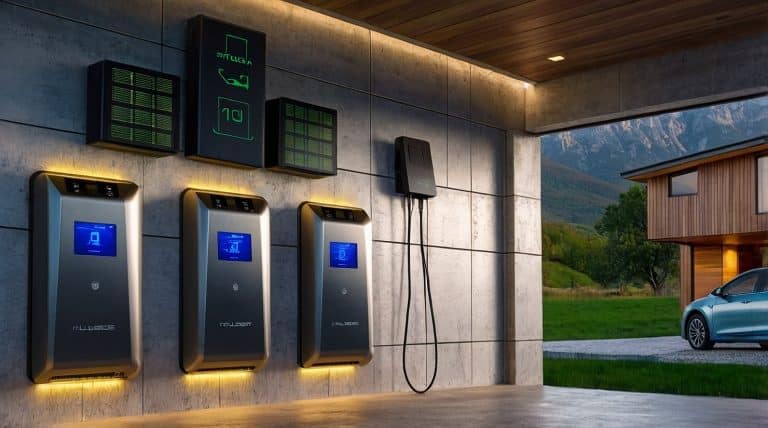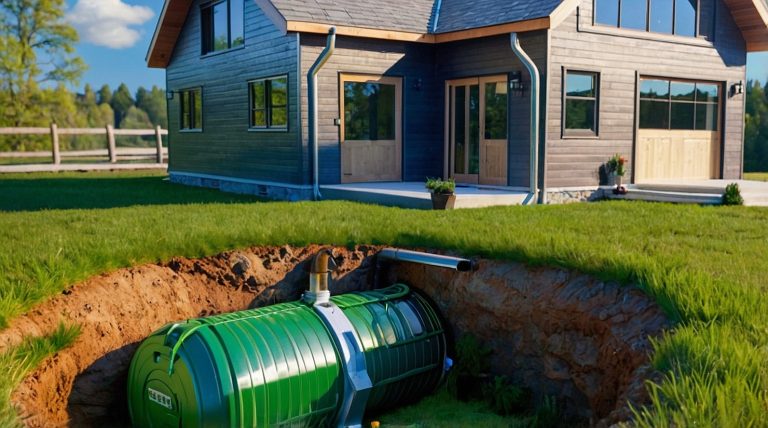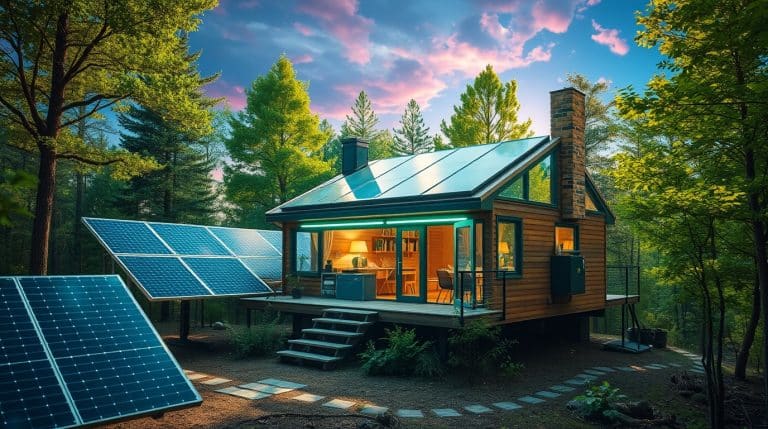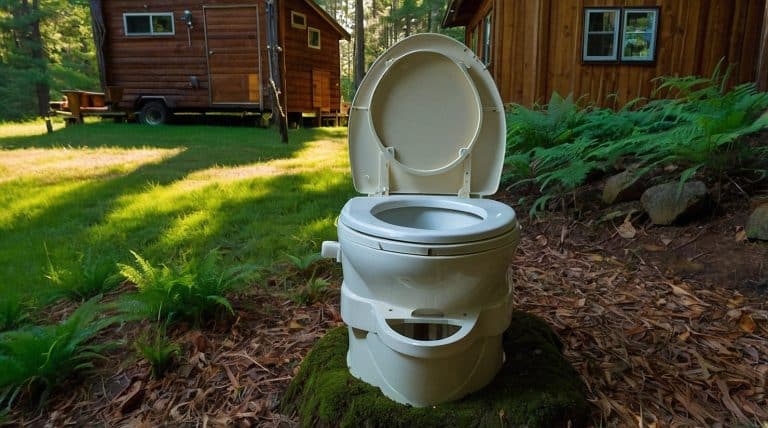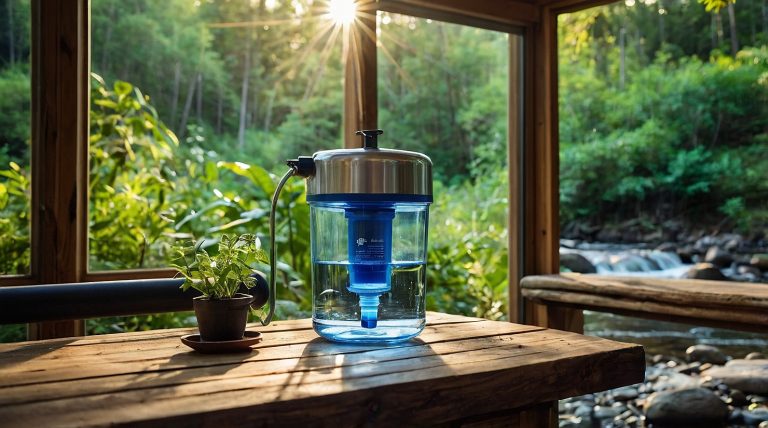Off Grid Refrigerator: Top 9 Best Energy-Saving Solutions
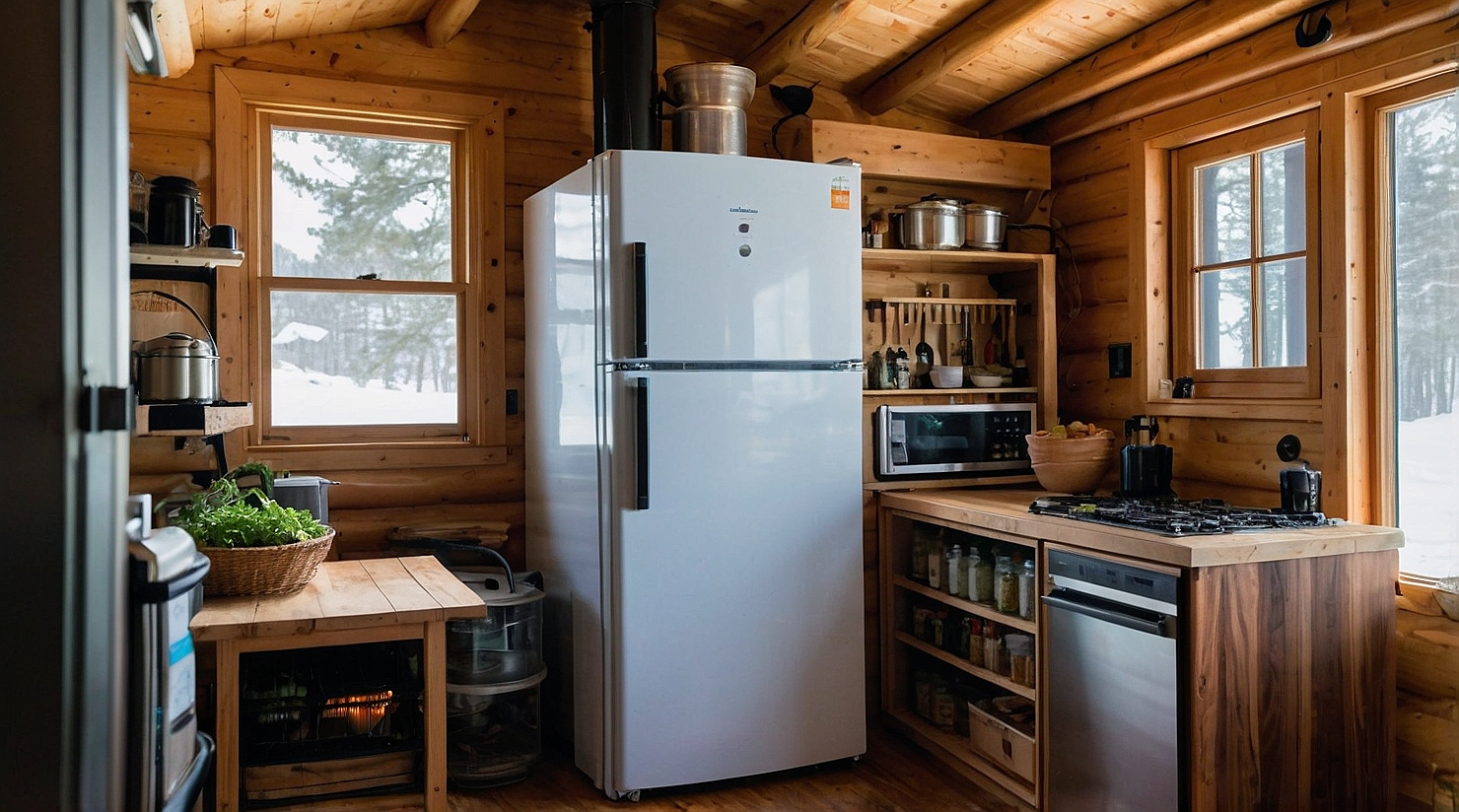
Keeping food cold without a traditional power source can be challenging, but an off grid refrigerator makes it possible without sacrificing convenience. Whether you’re relying on a propane freezer, a solar fridge, or a modified chest freezer, the right cooling solution ensures your food stays fresh in any environment. With options like solar panels, dc freezers, and absorption refrigerators, you can find an energy-efficient way to store food no matter where you live.
There are many off grid refrigerator options, each with unique benefits in temperature control, efficient cooling, and freezer capacity. From white propane refrigerators to bifacial solar-powered fridges, selecting the best system depends on your energy setup and needs. Understanding these choices will help you prevent ice buildup, stay prepared for power outages, and keep food fresh even in colder months.
This guide will walk you through the best off grid refrigerator options, covering their pros, cons, and key considerations. Whether you’re looking for a battery-charged cooling system, a propane gas fridge, or a solar-powered alternative, you’ll find everything you need to make an informed decision.
Choosing the Right Off Grid Refrigerator
Selecting an off grid refrigerator for grid living requires more than just considering size and price—your power source is the most important factor. Whether you rely on solar panels, propane gas, or a battery-charged system, choosing the right fridge ensures efficient cooling and long-term reliability.
Power Options
When choosing and off grid refrigerator, many off-gridders use solar panels with battery storage and charge controllers to power a solar fridge or other essential appliances. A well-sized solar generator can support a DC freezer, an absorption refrigerator, or a freezer refrigerator without overloading your system.
Your daily power generation directly affects your freezer capacity and temperature control needs. A combination of solar panels, wind power, and a backup generator can provide consistent energy, ensuring your off grid refrigerator stays fully charged and functional—even during colder months or unexpected power outages.
Common Off Grid Refrigerator Options
There’s an off grid refrigerator for every lifestyle, energy setup, and budget. Whether you need a propane freezer, a solar fridge, or an ultra-efficient dc freezer, each option has unique advantages. Below, we’ll explore the most common and lesser-known refrigeration methods to help you find the best fit for your needs.
Propane Refrigerators
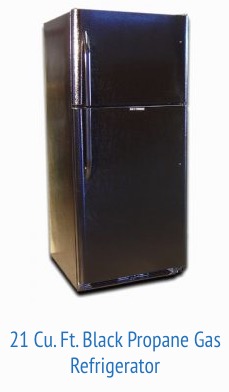
A propane refrigerator is a staple in off grid living, often found in RVs, cabins, and remote homes. These units rely on an absorption refrigerator system, using a heating element and propane gas to generate cooling. Unlike traditional electric fridges, they don’t require a compressor, making them quieter and highly energy-efficient.
Models vary in size from compact cu ft units to large-capacity options, providing more storage than most non-electric refrigerators. However, they require routine maintenance, such as checking the pilot light, ensuring proper ventilation, and monitoring propane consumption. Reliable brands like EZ Freeze offer excellent durability, but keep in mind that propane costs can add up over time.
Thermoelectric Coolers
An additional off grid refrigerator are the thermoelectric coolers which use the Peltier effect to lower temperatures, running on DC power from a solar panel, battery, or vehicle outlet. These are lightweight, portable, and ideal for short-term use in small setups with low power needs.
However, they have limitations. Unlike compressor-based refrigerators, they can only cool up to 30 degrees below ambient temperature, making them unreliable in hot climates. Storage space is also minimal, so choosing the right cubic foot capacity is crucial. While they work for beverages and snacks, they may not be ideal for long-term food storage.
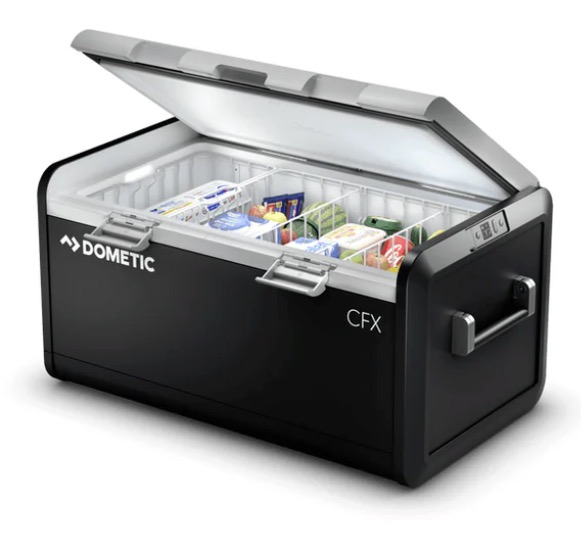
Chest Freezer Conversions
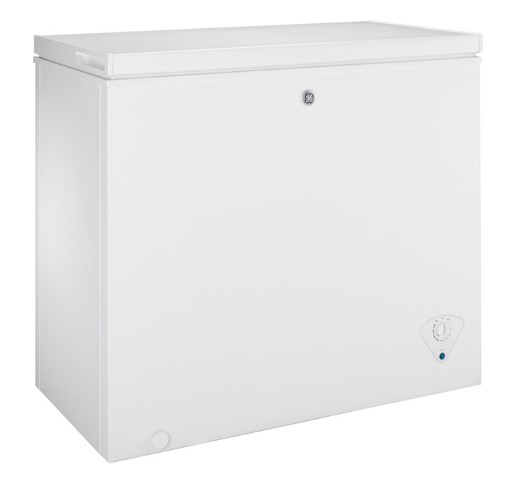
One of the best off grid refrigerator hacks is converting a chest freezer into a fridge using an external thermostat. This setup allows you to run the unit at fridge temperatures while using minimal energy, making it a favorite among solar-powered setups.
Most chest freezers have thick insulation, keeping food cold longer while requiring less frequent cycling. However, some models have a single compressor even when labeled as a fridge/freezer, which can impact performance in colder months. Despite this, many off-gridders prefer chest freezer conversions because they offer large freezer capacity while consuming significantly less power
Danfoss/Compressor Refrigerators
A Danfoss compressor refrigerator is one of the most efficient cooling solutions for off grid living. These units, found in brands like Sundanzer, ARB, and Vestfrost, run on AC and DC power, making them highly versatile. They are designed for low energy consumption, with some models using less than one amp, making them ideal for solar-powered setups with battery storage.
Unlike absorption refrigerators, these use a traditional compressor system, offering true freezer capability and excellent temperature control. While Danfoss compressors are reliable, they can be pricier than other options. However, their low power needs and ability to function on solar charge controllers or inverter-powered systems make them a top choice for long-term sustainability.
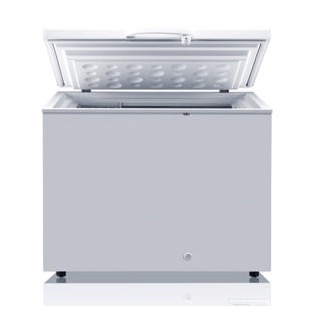
Less Common and Unique Off Grid Refrigerators
While propane refrigerators, solar fridges, and DC freezers are popular choices, there are also lesser-known but highly effective refrigeration methods for off grid living. These unconventional solutions can be game-changers, especially in remote locations, areas with limited power access, or for those seeking zero-electricity alternatives.
From ice house storage to Zeer pots, these methods use a mix of natural cooling, passive insulation, and alternative fuel sources to keep food fresh. Whether you’re looking to minimize energy consumption or need a backup solution for colder months and power outages, these unique refrigeration options can provide efficient cooling without relying on traditional electricity.
Ice House or Ice Chest Systems
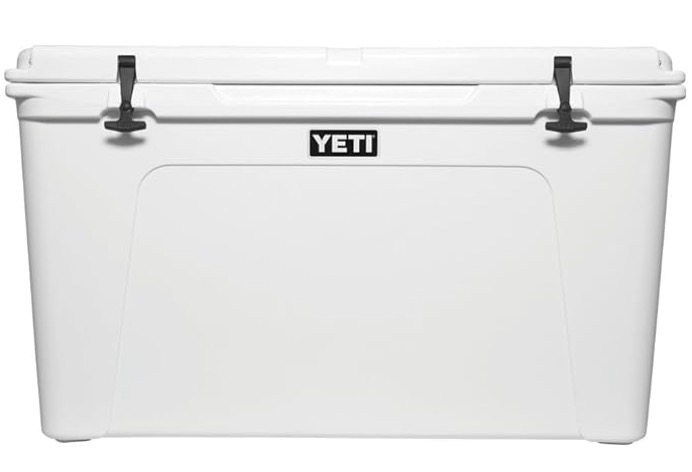
For those looking for a zero-energy cooling solution, an ice house or ice chest system is a traditional method that still works today. These systems rely on harvesting ice in colder months and storing it in highly insulated areas to keep food cold throughout the year.
While not as convenient as an off grid refrigerator, this method can provide passive cooling in the right conditions. It works best in northern climates where ice storage is feasible.
Zeer Pot (Clay Pot Refrigerator)
A Zeer pot is a simple, electricity-free way to keep fruits, vegetables, and dairy cool using evaporative cooling. It consists of two clay pots with wet sand between them, which helps lower the internal temperature as the water evaporates.
This method is most effective in hot, dry climates and works well for short-term food storage. While it won’t replace a solar fridge or propane freezer, it’s an excellent low-tech alternative for preserving perishable items.
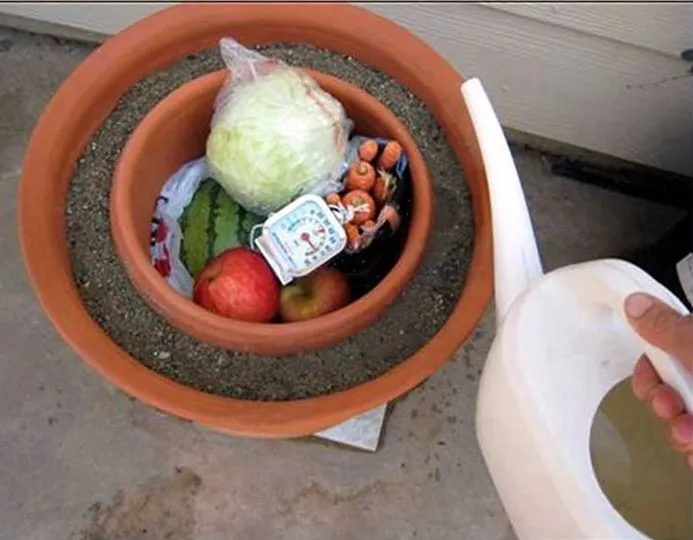
Solar Absorption Refrigerators
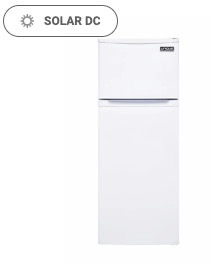
A solar absorption refrigerator is a unique off grid refrigerators option that uses solar heat instead of electricity to create cooling. Unlike standard solar refrigerators that rely on solar panels and battery storage, these units harness thermal energy to power an absorption cooling system.
These systems work best in areas with abundant sunlight and limited electricity availability. While they aren’t as common as solar dc fridges, they are an energy-efficient alternative for long-term sustainability.
Kerosene Refrigerators
Kerosene refrigerators are a practical alternative for off-grid living in regions where propane gas or solar power isn’t accessible. They operate using an absorption refrigerator system, where the heating element powered by kerosene fuel drives the cooling process. While they are less common than propane refrigerators, they remain valuable in extremely remote locations due to their dependability and low maintenance needs.
However, they require proper ventilation to prevent fumes from accumulating and regular fuel refilling to maintain consistent temperature control. Despite their limitations, kerosene-powered fridges can be a lifesaver for those in off-grid environments with minimal access to other energy sources.
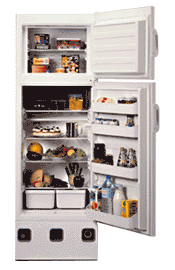
Root Cellars with Passive Cooling

While not a refrigerator in the traditional sense, it is the OG of off grid refrigerators. A root cellar is a passive cooling method that keeps food cold by using underground insulation.
This method has been used for centuries and is still popular among off grid living enthusiasts.
Root cellars are ideal for storing root vegetables, canned goods, and fermented foods, reducing the need for refrigeration while maintaining freshness for months. They work best in climates with seasonal temperature variation, offering a natural cold storage solution.
Which Off Grid Refrigerator Is Best for You?
Choosing the right off grid refrigerator depends on your energy source, budget, and storage needs. A Danfoss compressor fridge or a chest freezer conversion can be the most efficient cooling options if you have solar panels. A white propane refrigerator may be the best fit if you prefer propane gas. And if you want a zero-electricity solution, an ice house, Zeer pot, or root cellar might be worth considering.
No matter your setup, the right off grid refrigerator will help you store food safely, minimize power consumption, and stay prepared for colder months or power outages.
Frequently Asked Questions (FAQs) Off Grid Refrigerators
Final Thoughts
Finding the perfect off grid refrigerator depends on your energy setup, budget, and storage needs. Whether you choose a propane refrigerator, a solar fridge, or a chest freezer conversion, each option provides efficient cooling without relying on traditional utilities. With the right system in place, you can safely store food and maintain temperature control, even during power outages or colder months.
Many off grid refrigerators are designed to be more energy-efficient than standard models, making them ideal for grid living. Options like Danfoss compressor fridges, DC freezers, and solar-powered refrigerators maximize performance while minimizing power consumption. If you’re looking for a zero-electricity solution, an ice house, root cellar, or Zeer pot can also help keep food fresh in the right conditions.
No matter your lifestyle, there’s an off grid refrigerator that fits your needs. Investing in the right freezer capacity, solar panels, or propane gas setup ensures long-term sustainability and food security. By understanding your refrigeration options, you can make an informed decision that supports your off-grid lifestyle while keeping your food fresh year-round.

